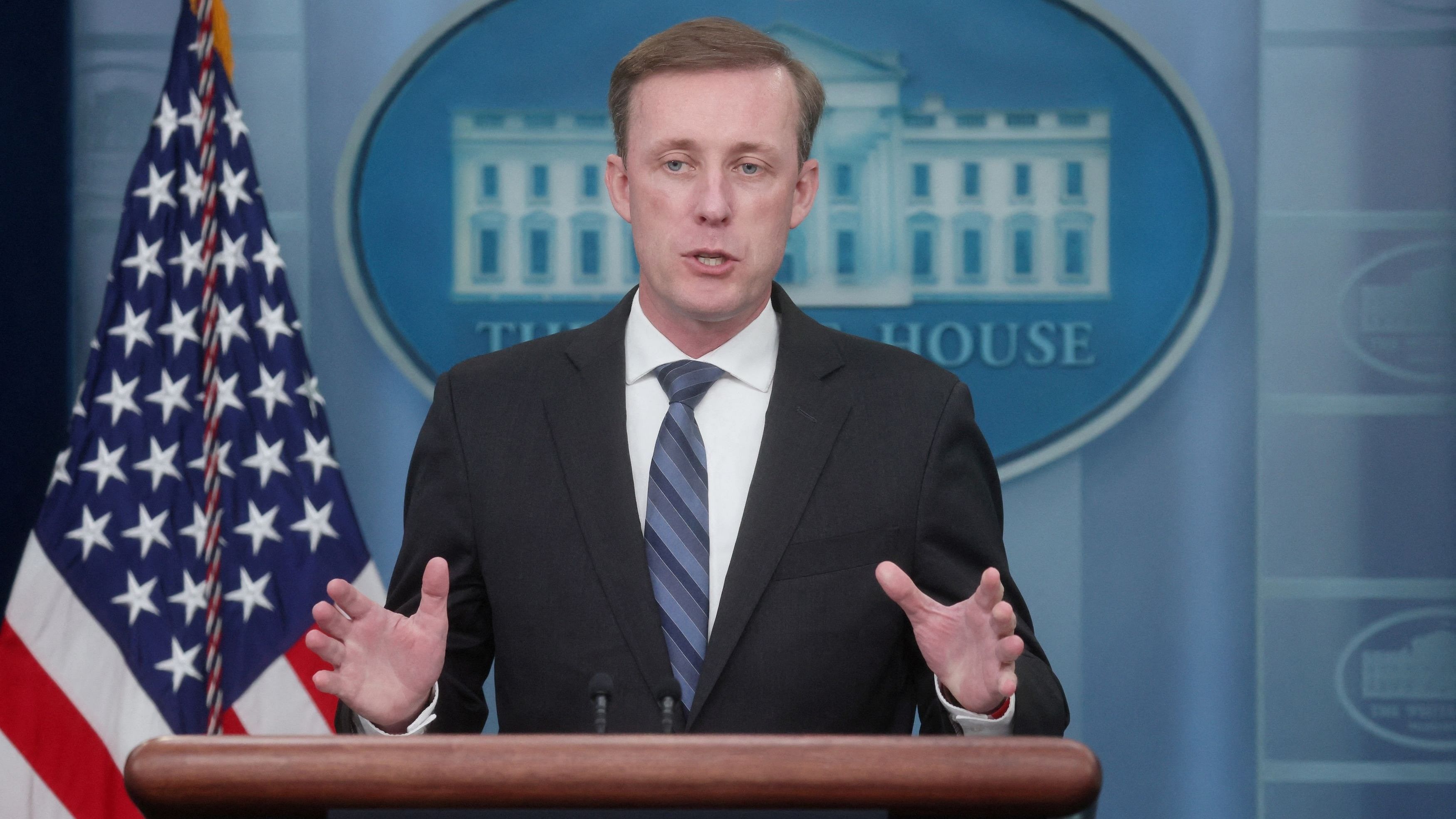
US National Security Advisor Jake Sullivan said, "If China wants to come in and play the role of spoiler, of course, that option is available to them”.
Reuters Photo
With Beijing raising several objections to the draft declaration proposed to be adopted by the G20 at its summit in New Delhi, the United States has asked China to keep aside the strains in its relations with India and avoid playing the role of a spoiler at the conclave.
Chinese President Xi Jinping has decided to skip the 18th G20 summit to be hosted by India. External Affairs Minister S Jaishankar, however, told the ANI news agency that Jinping's absence would not have any effect on the summit.
Jake Sullivan, President Joe Biden’s National Security Advisor, said that China had the option of being the spoilsport at the summit, but India, the US and all other members of the G20 would encourage Beijing to play a constructive role in advancing the agenda of the intergovernmental forum.
Sullivan was briefing journalists at the White House ahead of the US president’s visit to New Delhi to attend the G20 summit, which Prime Minister Narendra Modi will host on Saturday and Sunday. He was responding to a question from a journalist on the tension between India and China and whether that would have an adverse effect on the summit.
Beijing on Monday confirmed that the Chinese President will give the summit a miss and Premier Li Qiang will lead the country's delegation for the conclave in New Delhi.
China’s move to downgrade its participation in the summit fuelled speculations about its attempt to undermine India's G20 presidency. The relations between the two neighbours nosedived after their soldiers were engaged in a stand-off along the Line of Actual Control (LAC) in eastern Ladakh, in April-May of 2020. The deepening strategic convergence between India and the US in the Indo-Pacific region also irked China.
“As far as the question of tensions between India and China affecting the (G20) summit – really that's up to China. If China wants to come in and play the role of spoiler, of course, that option is available to them,” Sullivan told journalists during the briefing at the White House.
“What I think the chair, India, will encourage them to do - what we, the United States and every other member, virtually every other member of the G20 will do, is encourage them (China) to come in, in a constructive way on climate, on multilateral development, bank reform, on debt relief, on technology and set aside the geopolitical questions and really focus on problem-solving and delivering for the developing countries,” said Sullivan.
China has also raised several objections over the ‘Delhi Declaration’, proposed to be adopted by the G20 leaders at the end of the summit. It objected to the use of “Vasudhaiva Kutumbakam” in the text, pointing out that the phrase was in Sanskrit and not in English.
“Vasudhaiva Kutumbakam – One Earth, One Family, One Future” is the theme of the summit and New Delhi has been keen to have it mentioned in the outcome document as well.
China argued that its Belt and Road Initiative should be included in the outcome document - if it included India's “Vasudhaiva Kutumbakam”.
The Belt and Road Initiative is an ambitious cross-continental connectivity project launched by China. It, however, triggered controversy regarding China’s predatory lending practices that put several smaller nations in debt traps.
Beijing even objected to an acronym proposed by New Delhi for an initiative to popularise millet and other ancient grains - as the said acronym was a Sanskrit or Hindi word.
China also joined Russia in opposing the inclusion of two paragraphs in the proposed Delhi Declaration to condemn Moscow’s military aggression against Ukraine.
